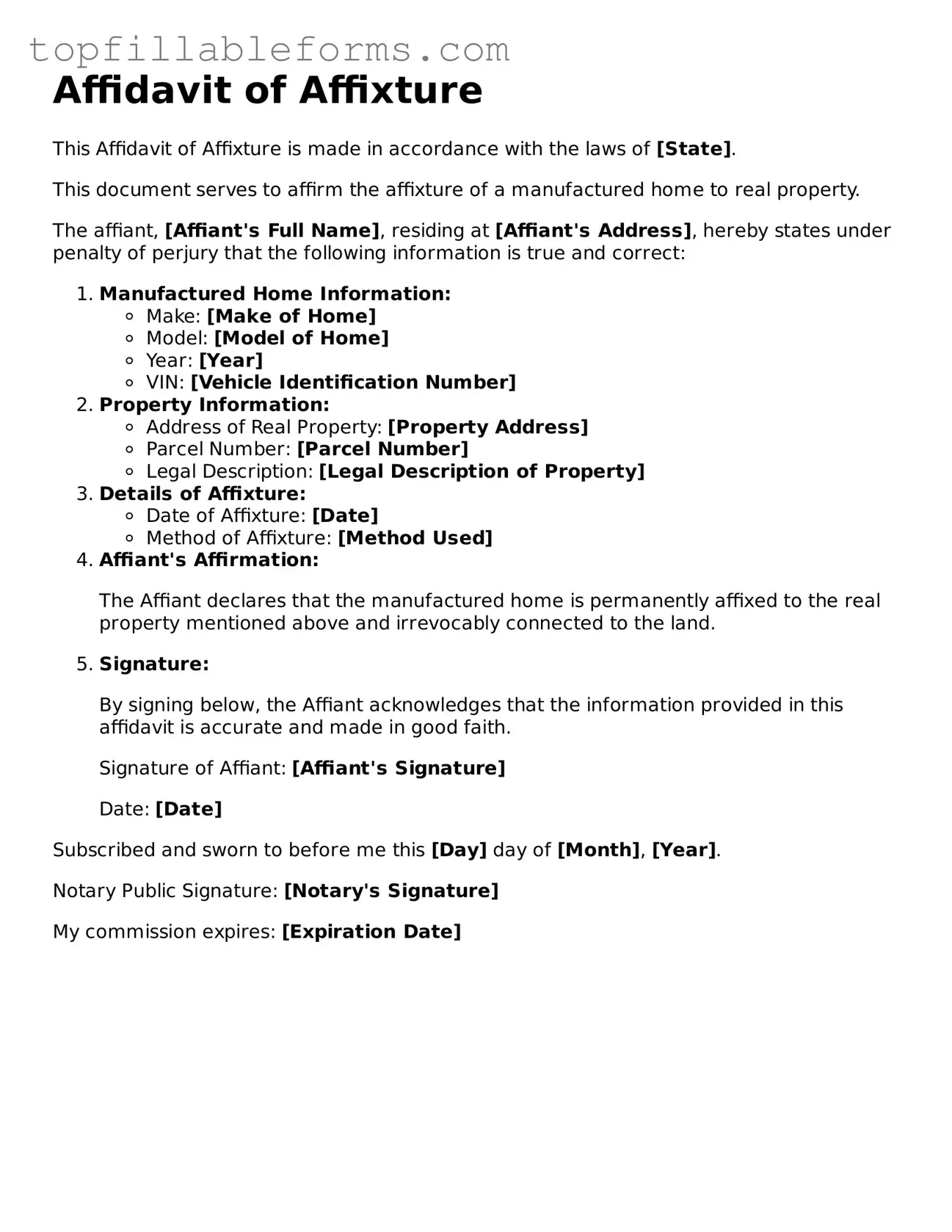Free Affidavit of Affixture Form
The Affidavit of Affixture is a legal document used to declare that a mobile home has been permanently affixed to a piece of real property. This form serves to establish the home as part of the land, which can affect ownership rights and property taxes. Understanding this document is essential for homeowners and buyers alike, as it clarifies the relationship between the home and the property it occupies.
Open Affidavit of Affixture Editor Here

Free Affidavit of Affixture Form
Open Affidavit of Affixture Editor Here
Finish the form now and be done
Finish your Affidavit of Affixture online by editing, saving, and downloading fast.
Open Affidavit of Affixture Editor Here
or
▼ PDF File
